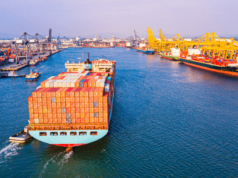Italian Ministry of Environment guarantees that the Trans-Adriatic Pipeline (TAP) will not have any negative impact or consequences for the territories through which it will pass.
This was stated by TAP’s country manager for Italy Michele Mario Elia at the expert meeting on environmental and climate issues in Italy, Italian media outlets reported.
He noted that TAP will link Italy with Azerbaijan’s gas fields and will make Italy energy independent by providing it with about 10 billion cubic meters of gas per year.
The country manager recalled that the TAP consortium was granted permits for the construction from the authorities of Apulia region, with whom it closely cooperates.
Michele Mario Elia also underlined that TAP has no contraindication from the point of safety as it uses the same technologies and standards as the 35,000-kilometers long gas network already operating in Italy.
The European Union recognizes the role of the Trans Adriatic Pipeline (TAP) in addressing the urgent energy policy objective of ensuring security and diversity of energy supply to Europe.
Once built, TAP will play a part in helping secure Europe’s energy future. One of the most important energy infrastructure projects will allow Caspian natural gas to flow into Europe’s energy markets.
TAP has been given a Project of Common Interest (PCI) status for its role in opening up the Southern Gas Corridor, one of 12 so-called energy corridors identified by the EU as priorities for the achievement of European energy policy objectives. The project envisages transportation of gas from Azerbaijan’s Shah Deniz Stage 2 to the EU countries.
The pipeline will connect to the Trans Anatolian Natural Gas Pipeline (TANAP) on the Turkish-Greek border, run through Greece, Albania and the Adriatic Sea, before coming ashore in Italy’s south.
TAP will be 878 kilometers in length (Greece 550 kilometers, Albania 215 kilometers, Adriatic Sea 105 kilometers, and Italy 8 kilometers).
TAP’s shareholding is comprised of BP (20 percent), SOCAR (20 percent), Snam S.p.A. (20 percent), Fluxys (19 percent), Enagás (16 percent) and Axpo (5 percent).
© Content from this site must be hyperlinked when used






